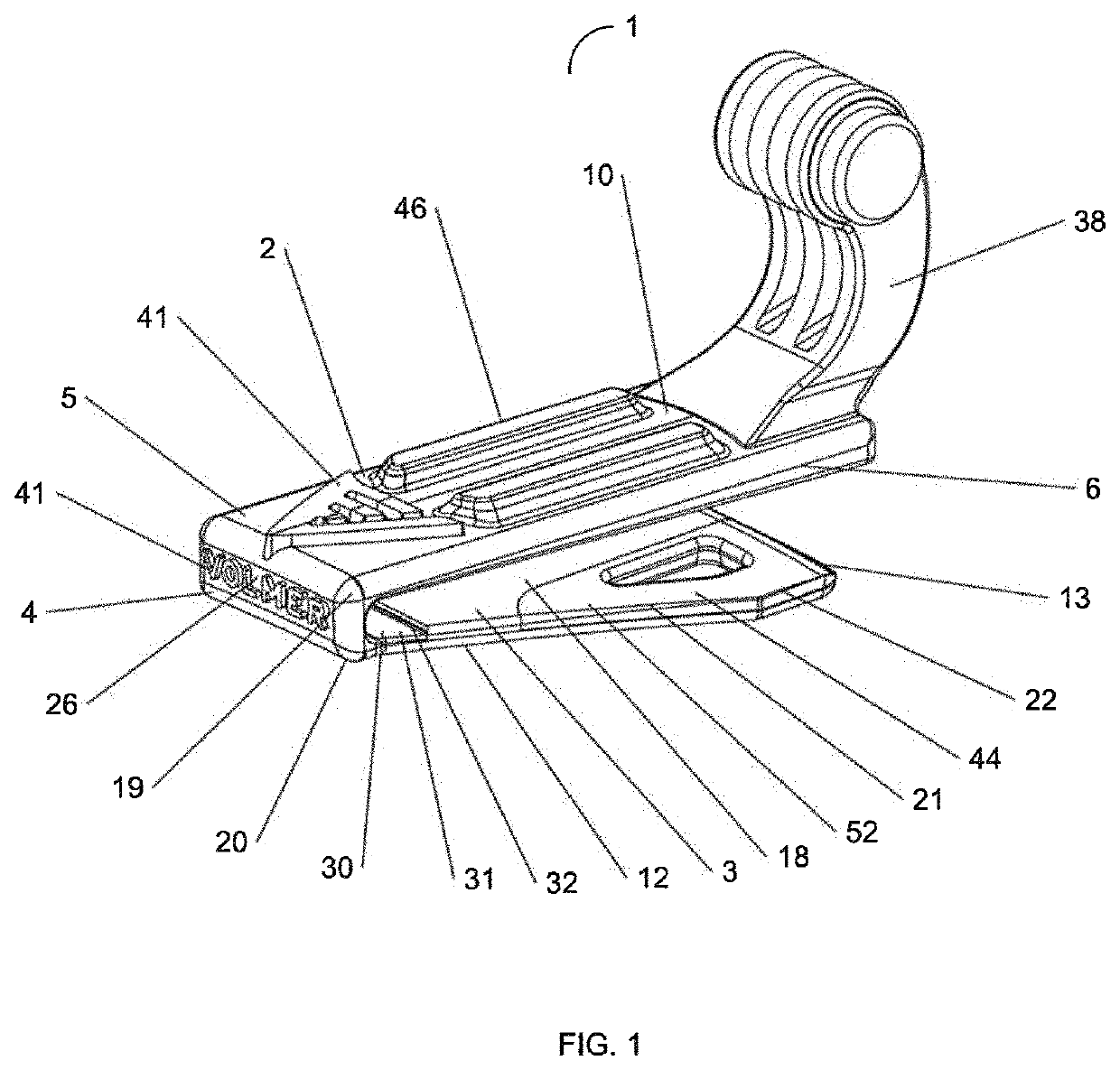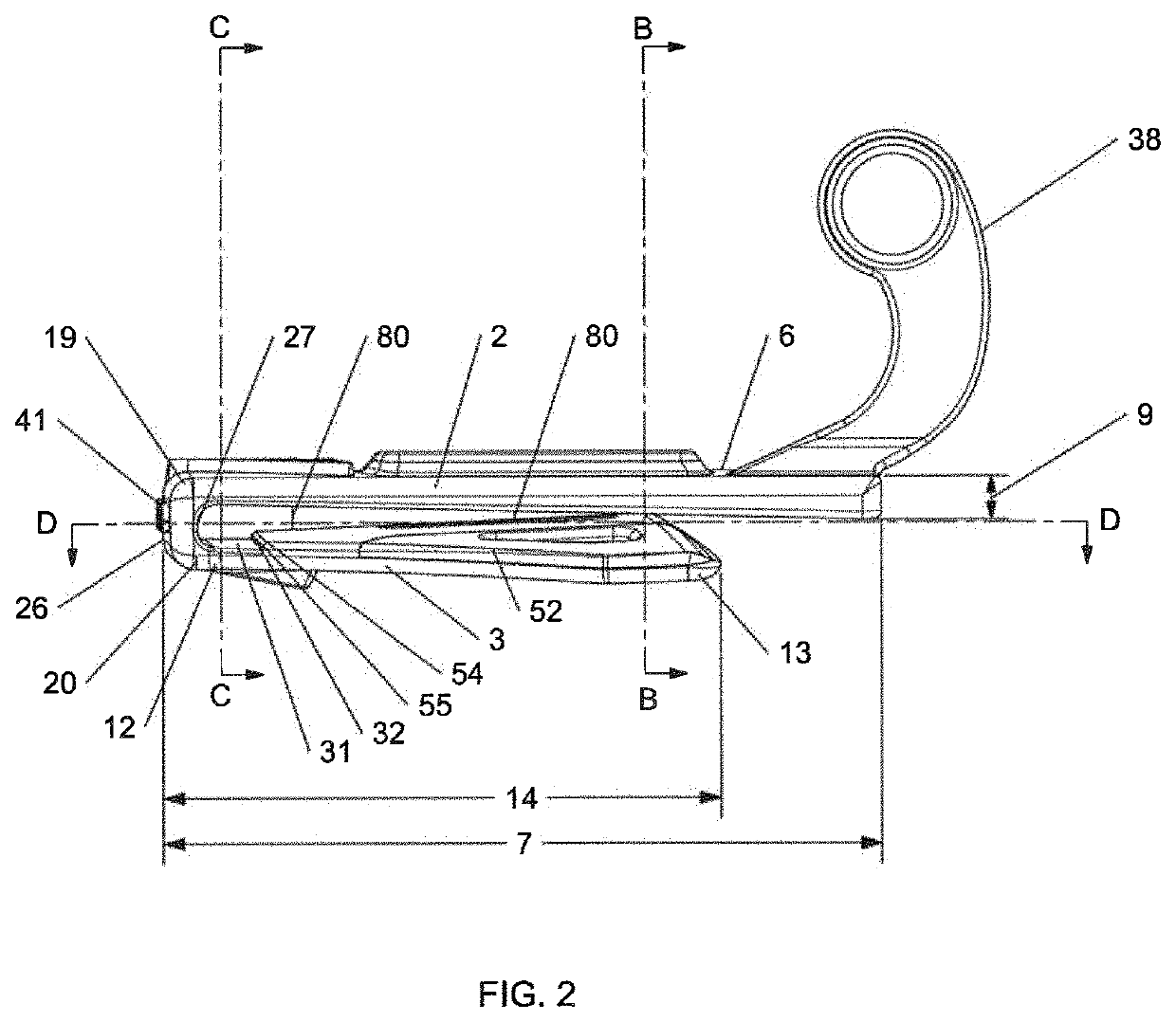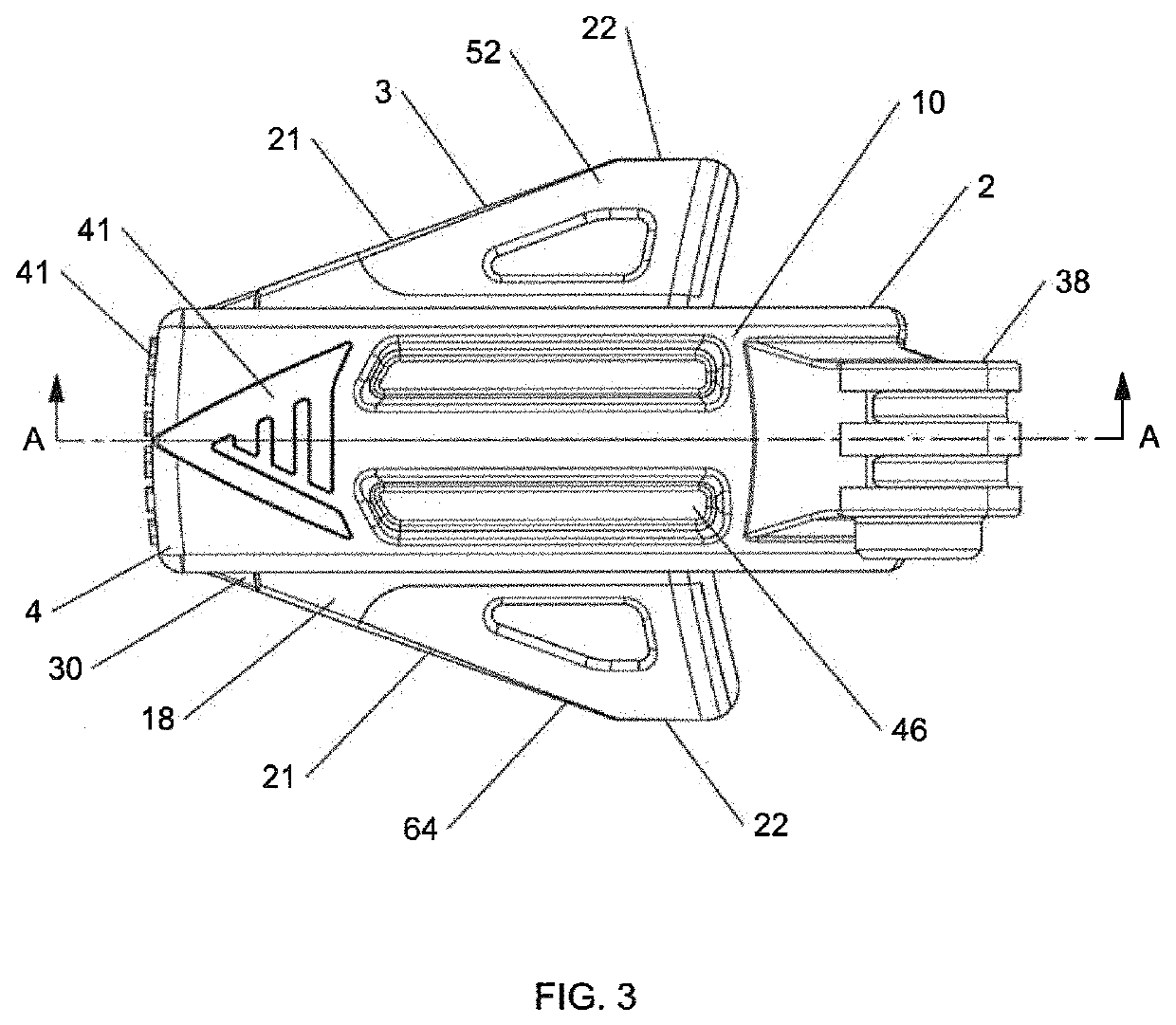Brim clip with dual lighting systems
a dual-lighting system and clip technology, applied in the field of accessories, can solve the problems of many users eschewing elastic band mounts, unsatisfactory type mounts, and many deficiencies of users
- Summary
- Abstract
- Description
- Claims
- Application Information
AI Technical Summary
Benefits of technology
Problems solved by technology
Method used
Image
Examples
Embodiment Construction
[0060]A preferred embodiment of the present invention accessory mounting clip 1 and its preferred constituent features are shown in FIGS. 1-10, FIGS. 13A-13D and FIGS. 14-17. For reference purposes the term “distal end” is used to refer to that portion of the clip or its components that are furthest away from a user's head when the clip is deployed on the brim of a hat. The term “proximal end” is used to refer to that portion of the clip or its components that are nearest the user's head when the clip is deployed on the brim of a hat. The preferred embodiment clip works particularly well when used to mount accessories on the brim (a / k / a bill) 71 of a baseball cap 70 such as is shown in FIGS. 12A and 12B. As shown in FIGS. 12A and 12B, brim 71 typically has a front edge 72 that has a front to back curvature of certain radius. Brim 71 also has a thickness 74. Brim 71 also has a transverse curvature or bend of a certain radius that is best discerned when looking at the cap head on.
[006...
PUM
| Property | Measurement | Unit |
|---|---|---|
| width | aaaaa | aaaaa |
| length | aaaaa | aaaaa |
| width | aaaaa | aaaaa |
Abstract
Description
Claims
Application Information
 Login to View More
Login to View More - R&D
- Intellectual Property
- Life Sciences
- Materials
- Tech Scout
- Unparalleled Data Quality
- Higher Quality Content
- 60% Fewer Hallucinations
Browse by: Latest US Patents, China's latest patents, Technical Efficacy Thesaurus, Application Domain, Technology Topic, Popular Technical Reports.
© 2025 PatSnap. All rights reserved.Legal|Privacy policy|Modern Slavery Act Transparency Statement|Sitemap|About US| Contact US: help@patsnap.com



